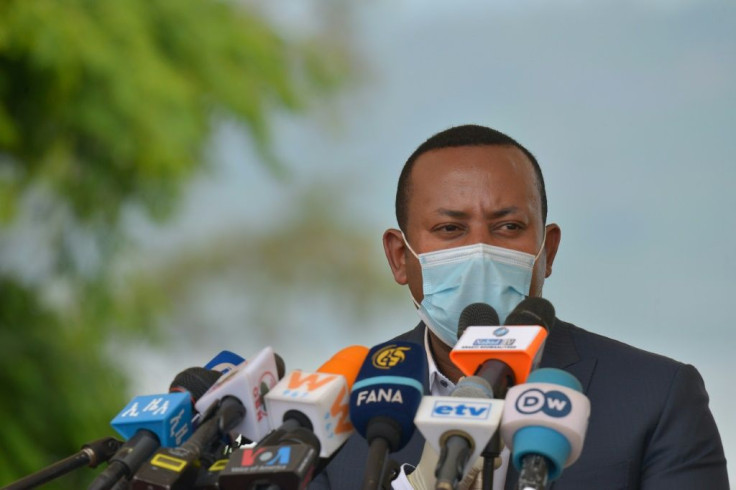Ethiopia: Abiy Rejects Transitional Govt To Solve Election Impasse
Ethiopian Prime Minister Abiy Ahmed on Monday ruled out forming a transitional government once his mandate expires in early October, brushing aside accusations that he was misusing the coronavirus epidemic and delayed polls to artificially extend his rule.
Africa's second most populous country was due to hold national elections in August that Abiy hoped would give him a mandate for wide-ranging political and economic reforms.
But the election board announced in late March that it would be impossible to organise the polls on time because of the new coronavirus pandemic.
That means elections will not happen before the lawmakers' mandates expire in October -- a dilemma for which the constitution does not have a clear answer.
"People can raise the issue of caretaker and transitional government but it's unconstitutional when put into practice," Abiy, the winner of last year's Nobel Peace Prize, said Monday during a question-and-answer session with lawmakers.
He also said his political party, the Prosperity Party, was eager to face voters.
"We want the elections to be held. The Prosperity Party isn't a party that is scared of elections," he said.
Last month, Ethiopia's Council of Constitutional Inquiry held public hearings on the possible next steps, and the House of Federation, the upper house of parliament, is expected to respond to its recommendations soon.
Abiy said Monday the election delay could last "a few months," although the election board told the council it would need at least 10 more months to prepare.

Opposition leaders have accused Abiy of seizing on the coronavirus pandemic to artifically prolong his mandate.
On Monday afternoon, state-run media reported that upper house speaker Keria Ibrahim had resigned from her position, saying she was "not willing to work with a group that violates the constitution and exercises dictatorship".
Keria is a member of the Tigray People's Liberation Front, which dominated the ruling coalition before Abiy came to power in 2018 but has since been sidelined and officially parted ways with him last year.
Other opposition politicians have demanded a more prominent role in resolving the impasse, arguing that consulting parliament is insufficient because most lawmakers support the ruling party.
During a press briefing in late May, Dawud Ibsa, chairman of the opposition Oromo Liberation Front, said "some of the powers of the government should be under the control" of the opposition until elections can be held.
Abiy, for his part, has accused opposition politicians of trying to exploit uncertainty created by the pandemic to claim power for themselves.
Ethiopia announced its first case of COVID-19 in mid-March and has so far tallied 2,156 cases and 27 deaths.
About half of those cases have been recorded in the past 10 days, and the health ministry said Monday it "would like to extend our call for more collective action than ever before" to fight the pandemic.
© Copyright AFP 2024. All rights reserved.





















